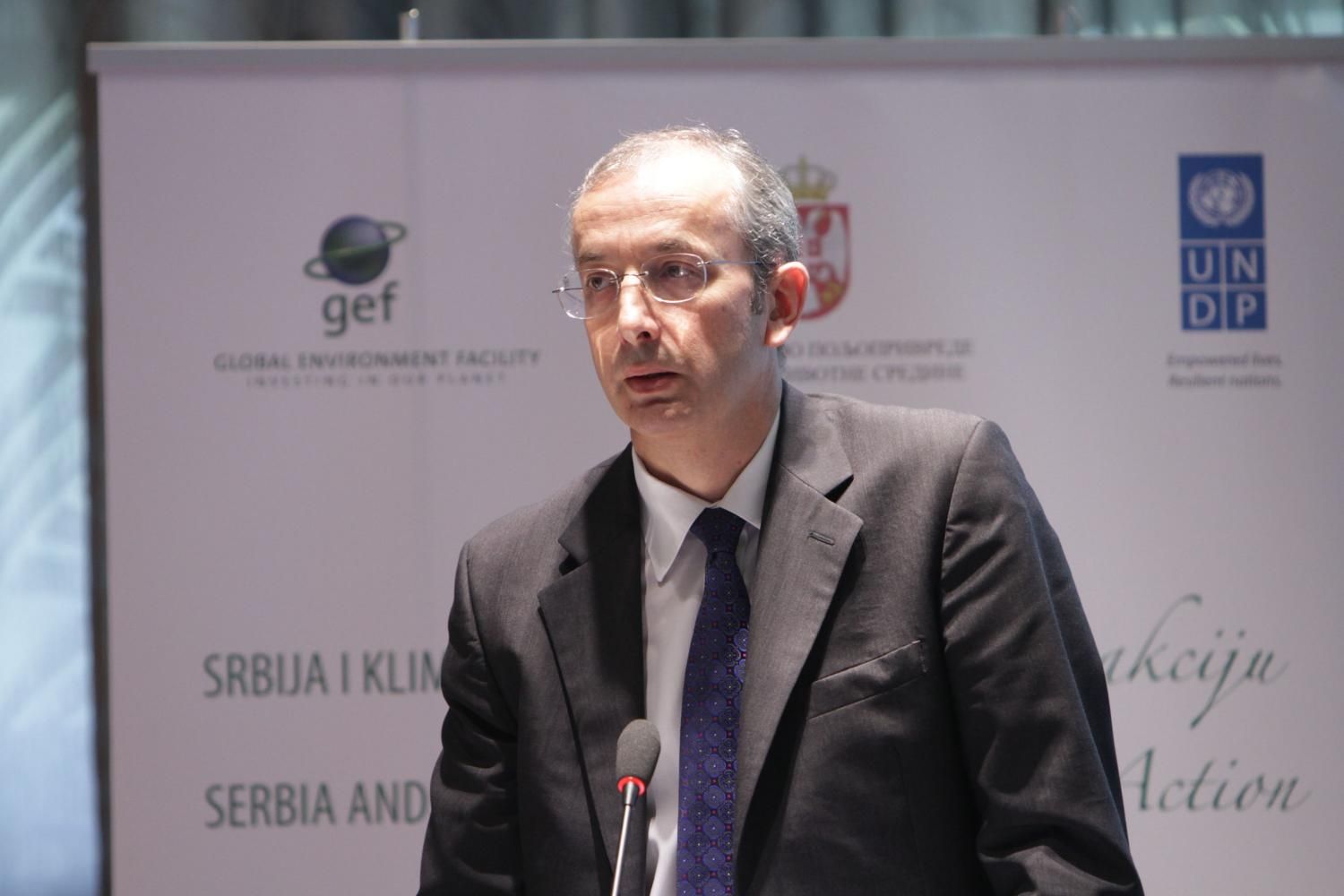Head of EU Delegation in Belgrade Michael Davenport said today that the effects of climate change were being felt all over the world, and could already be seen here in Serbia – last year’s flooding was only one example.
At the conference titled “Serbia’s climate talks – on the way to Paris” Davenport pointed out that refugee crises whilst largely incited by armed conflict and terror had in part also its origin in climate change induced poverty. The EU and Serbia have a strong and growing relationship on climate change and Brussels highly appreciates its partnership with Belgrade in this regard,” said Davenport.
Davenport said that the new agreement on “fighting climate change” would be legally binding for all participants, but that adaptation to climate change would be among central topics of discussion in Paris. He said the EU pledged to cut CO2 emissions by 40% as compared to 1990 and increase renewable energy of at least 27%, whilst signatories also worked on keeping global warming below 2 degrees Celsius.
Permanent Representative of UNDP in Belgrade Irena Vojačkova Sollorano said that last year during floods, Serbia received message saying “if we don’t play nice to nature, it would not be playing nice to us.” She mentioned that UNDP was engaged in more than 120 projects n the region related to climate change adaptation, whose total worth was 600 million dollars.
Minister of Agriculture and Environmental Protection Snezana Bogosavljevic Boskovic said that Serbian Government believed climate change were a huge challenge and a problem which required a global solution. “We have determined Intended Nationally Determined Contributions in June and sent them to UN,” said Snezana Bogosavljevic Boskovic.
German Ambassador Axel Dittmann said that his country decided to double resources for less developed countries in order to support them in fighting climate change in the period of 2014-2020.
French Ambassador in Belgrade Christine Moro said that Serbia was the first European country to send its national plan for greenhouse gas emission cuts to UN. “Serbia set a goal of reducing greenhouse gas emission to 9.8 per cent by 2030, compared to 2011 levels. It may seem modest compared to EU goals, but is still a result of Serbia’s intense work and commitment,” said Moro.




